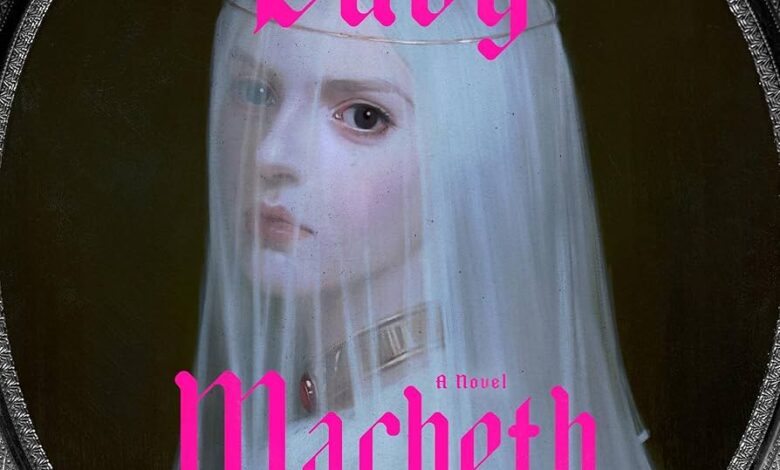Review: Lady Macbeth by Ava Reid

Samantha Kavich ‘25 / Emertainment Monthly Staff Writer
Thank you to the publisher and NetGalley for providing an ARC in exchange for an honest review.
When I saw that Ava Reid, an author whose books I’d only heard wonderful things about, was coming out with a Lady Macbeth retelling, I created a whole NetGalley account just so I could get my hands on an ARC. Was it worth it? Well, the NetGalley account was, because now I can write reviews for ARCs. My thoughts on Lady Macbeth turned out to be a little more complex.
Reid’s prose is the backbone of all of her work. Her sentences and metaphors are jaw-droppingly beautiful in every book of hers that I’ve picked up, and Lady Macbeth is no exception. In spite of never venturing far from the rather dreary setting—a spookily empty old stone castle perched on a cliffside in rainy, gray Scotland—Reid’s descriptions of the story’s backdrop manage to always be refreshing, turning the setting into a vital character. It is entirely possible that the castle and the background of Scotland/Glammis itself did turn out to be my favorite character in the end, because the other characters, well…
The titular character, Lady Macbeth—in this retelling, her name is Roscille—is a seventeen-year-old girl who has been shipped off to Scotland after her father arranged for her to be married to Macbeth. We are immediately introduced to Roscille as someone who is cunning and manipulative—as Shakespeare’s character is famous for being—but Roscille’s actions throughout this retelling don’t consistently fit in with that description of her. A lot of the actions she takes throughout the novel that are of large consequence for the plot happen less out of Roscille’s own administration than they are a result of her deliberate actions spiraling out of control into something else. And unfortunately, that’s just not the Lady Macbeth I went into this book expecting to read about. Shakespeare’s Lady Macbeth is cunning and destructive on purpose, one of Shakespere’s most compelling characters just for the sheer amount of agency she expresses as the only central female character in a play about men. Some have even argued that Macbeth isn’t named after the man Macbeth at all, but after his wife, who is the true puppeteer of the plot.
After reading three-fourths of the book wondering why in a story called Lady Macbeth it felt like I was reading about a completely different character, the book’s twist provides a reason for it. Without spoiling anything, there is a reason for why Roscille feels so different from the original Lady Macbeth—unfortunately, that reason just doesn’t make any sense, and is never fully explained in a satisfying way. Even just as a character of her own, Roscille doesn’t have as much development as she should from the beginning of the story to the end—which is unfortunate, because Reid had a lot of good setup and concepts to work with that, for the most part, all ended up falling through.
On top of that, the magic system—including a dragon; you read that right, a dragon in a Macbeth retelling—and romance also suffered from immense underdevelopment. I think my main issue with this story was that I couldn’t figure out what makes it a retelling besides the general plot structure, names of characters, and setting being mostly the same. Some pivotal characters from the original Macbeth were cut entirely, while others were changed so much that they were hardly recognizable. Part of me feels like this novel would have been better if it weren’t a Macbeth retelling.
That being said, I didn’t entirely dislike it. The way Reid depicted the three witches and their position in the story was fascinating and chilling in equal measure. In this retelling, we learn pretty early on that Roscille has some witch blood herself that gives her powerful abilities—while on the one hand I think that’s a fun concept to explore, part of Lady Macbeth’s appeal to me has always been that she is just a human woman in an extremely patriarchal, misogynistic world, and none the less powerful for it.
It’s a good thing that Ava Reid’s writing style is intoxicating. I would honestly just recommend this book, or probably one of Reid’s better books, such as Juniper and Thorn, to anyone who enjoys words as much as I do. All in all, I’m disappointed to say that Lady Macbeth just wasn’t for me. The cover is gorgeous, though.